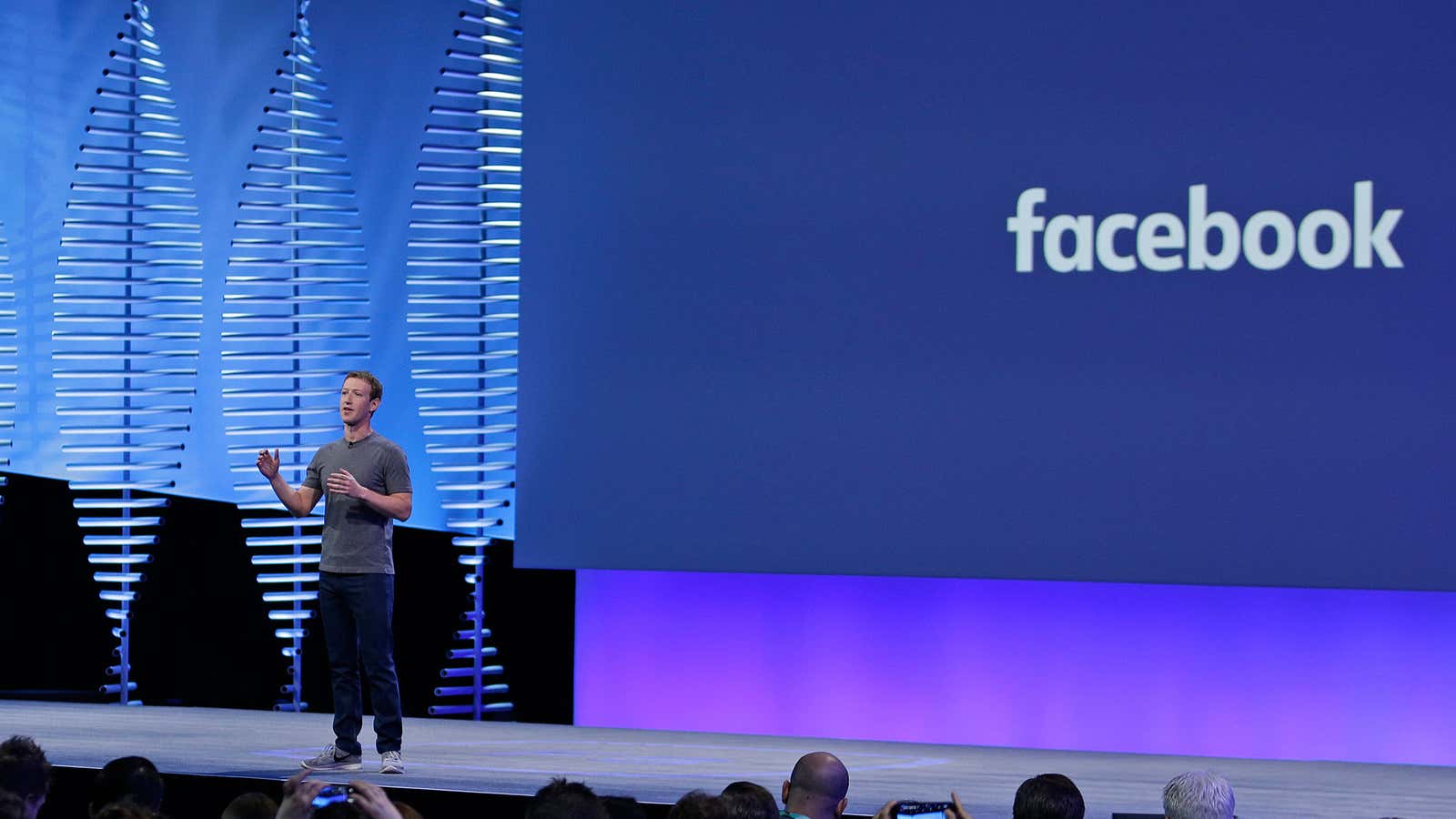Facebook wants to show ads to everyone on the internet, whether or not they’re users of the social network.
On May 26, the company made a seemingly minor change that dramatically increases the reach of its ad network. Audience Network previously surfaced ads to Facebook users on the social network and other websites, but it will now display advertisements to non-users on third-party sites that are part of its network.
Andrew Bosworth, Facebook’s vice president of ads and business platform, says the move will improve the quality of ads on the internet, noting such ads will be reviewed by the company so “they are as respectful of people’s experience as possible.”
We’ve all had this experience. You open a news article on your phone’s web browser and the page takes unusually long to load. Once it appears, the article is blocked by an ad. You might see a tiny “x” to hide the ad, but if you tap in the wrong spot, you get redirected to an app store or another website. It can be unclear who’s behind the ad or even if the website you’ve been directed to is safe to visit.
“Advertising may be here to stay, but bad advertising like this doesn’t have to,” he wrote in a blog post.
The decision to widen Audience Network’s reach has massive implications for ramping up Facebook’s top line, which already has been growing at quickly. In the first quarter of 2016, the company reaped $5.2 billion in ad sales. While that’s only a fraction of Google’s $20.1 billion in revenue over the same period, the search giant is undoubtedly worried about Facebook’s year-over-year revenue growth rates, which have surpassed 40% for the past 14 quarters. Google’s revenue growth, meanwhile, has been in the teens since late 2014.
Google should also be concerned about Facebook’s targeting. The social network’s not-so-secret weapon is a trove of personal data of 1.65 billion users, which the company intends to use, along with cookies, to infer the interests of non-users, according to the Wall Street Journal. In the past, Google has dismissed the value of this information. Omid Kordestani, then Google’s chief business officer, said (without explicitly naming Facebook) in an earnings call last year that it was ”more valuable to know someone is shopping for a new SUV than it is to know basic demographic information about them.”
